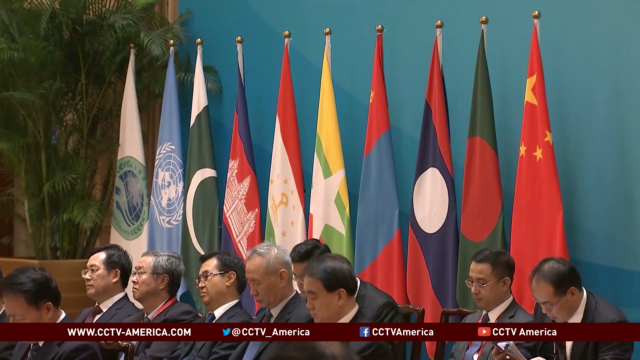2014 has been one of the most active for Chinese diplomacy as leaders tackled economic reform, battled corruption, and China became a more active player on the world stage. CCTV News reporter Han Bin reported this story from Beijing.

“President Xi Jinping, for example, believes that a more proactive approach not only serves China’s interests, but also serves the interests of other countries,” said Jia Qingguo, dean of the School of International Studies at Peking University. “This is a time for China to be more proactive, in promoting China’s relationship with the outside world.”
Chinese leaders have also initiated new ways to relate to large superpowers and neighboring countries, experts said. In it’s relationship with the United States, for example, China proposed a model of “major-country relationship” focusing on avoiding conflict and respecting core interests.
In its relations with neighboring countries, it has used the concept of “sharing prosperity and inclusiveness.”
The aim is to make connections in policy, transportation, trade, currency and even in the hearts of people, experts said.
Some experts say its robust economy is forcing China to become a global player. The country is seeking recognition as a responsible stakeholder. Yet, at the same time, China still regards itself as a developing country. This seeming contradiction has sparked debate on the degree to which China should engage with the wider world
“China has become so big as the result of its economic development, that it can no longer take a free ride in the international system. In a way it has to contribute, and sometimes it has to take leadership in the world,” Jia said. “This is a time for China to fulfill its international responsibilities, in order to serve its own national interests.”
 CGTN America
CGTN America
